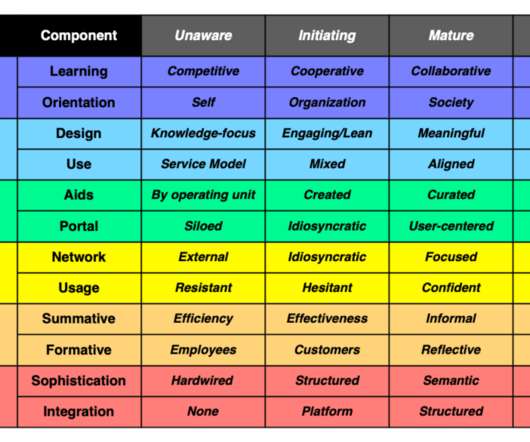Integrating Social Learning In The Workplace
Learnnovators
MAY 11, 2015
I have been writing about social learning and its related concepts – communities of practices , working out loud and skills for the networked world for quite some time now. Social learning has become a buzzword in the workplace learning space, and every other organization is claiming to have “social learning” as a part of the mix.









































Let's personalize your content